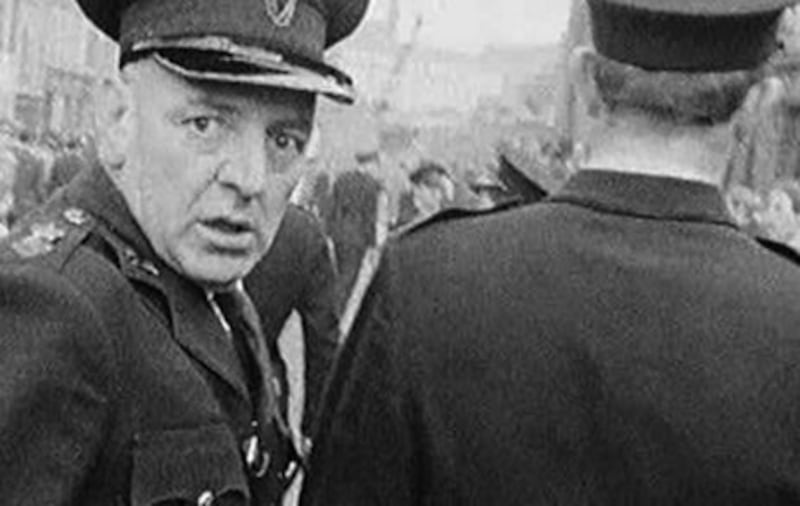FOOTAGE beamed across the world of the RUC baton-charging protesters at a march in Derry was "60 seconds of film that sparked such a change", according to veteran civil rights campaigner Eamonn McCann.
As one of the organisers of the civil rights march on October 5 1968, Mr McCann believes the short news film, captured by RTÉ cameraman Gay O'Brien, was a key element in making the demonstration a transforming moment in modern Irish history.
Many observers believe it was the day the Troubles officially began.
Banned by the unionist government at Stormont, the small band of civil rights protesters decided to defy the government and march from Derry’s Waterside to the Diamond on the city side.
They were joined by West Belfast MP Gerry Fitt and three British Labour Party MPs. However, shortly after the march started, they were confronted from all sides by RUC baton charges.
According to Mr McCann, the fact that television footage of members of parliament being brutally attacked by the police went around the world made October 5 different from previous protests.
“It wasn’t just that but the fact that it made the news was hugely significant. I remember when I came home 7 o’clock, everyone was saying it was on the news; it was the first item on the BBC news,” he said.
The Derry activist said the 60-second RTÉ footage showed the world outside Northern Ireland what was happening.
“Never has 60 seconds of film sparked such a change,” he said.
Read more:
- Businessman was attacked while trying to negotiate with RUC during civil rights march
- Altnagelvin hospital was like a war zone following October 5 Civil Rights march
Mr McCann said he knew almost immediately after the police baton-charged the march that what had happened was hugely important.
“I was along with a friend, a school teacher, Peter Mullan and I remember us saying they (RUC and Unionist authorities) have made a big mistake,” he said.


Read more:
- President Michael D Higgins to address civil rights commemoration
- Official report severely criticised police actions on day of civil rights march
The fact that Derry had a huge nationalist/Catholic majority and was discriminated against by the Londonderry Corporation was also a factor.
While Northern Irish politics tended to be insular, Mr McCann said he was aware that what was happening was against a background of change throughout the world with student protests in Paris and anti-Vietnam war demonstrations in the US.
Mr McCann said that while the October 5 march was joined by people from both communities, the campaign was later seen as a green-versus-orange affair.
He said people underestimated the grip of nationalism and the nature of northern politics.
Read more:
- President Michael D Higgins to address civil rights commemoration
- Official report severely criticised police actions on day of civil rights march
Fifty years on, Mr McCann said he has absolutely no regrets about his role in 1968.
“Anybody who was around at the time and who was involved in politics - particularly politics on the street - has to acknowledge that they were involved to some extent in things that led on to more serious and more bloodier actions.
“I regret that that happened and I regret that we didn’t handle things well enough at the beginning in order to minimise the chances of that happening, particularly our estimation of nationalism which turned out to be somewhat inadequate to put it mildly.
"The strength of communal politics turned out to be much more formidable than we had imagined it to be. I don’t regret for a moment being involved in the civil rights movement; I don’t regret the October 5 march or any of the activities that people like myself were involved in,” Mr McCann said.
Read more:
- Businessman was attacked while trying to negotiate with RUC during civil rights march
- Altnagelvin hospital was like a war zone following October 5 Civil Rights march








